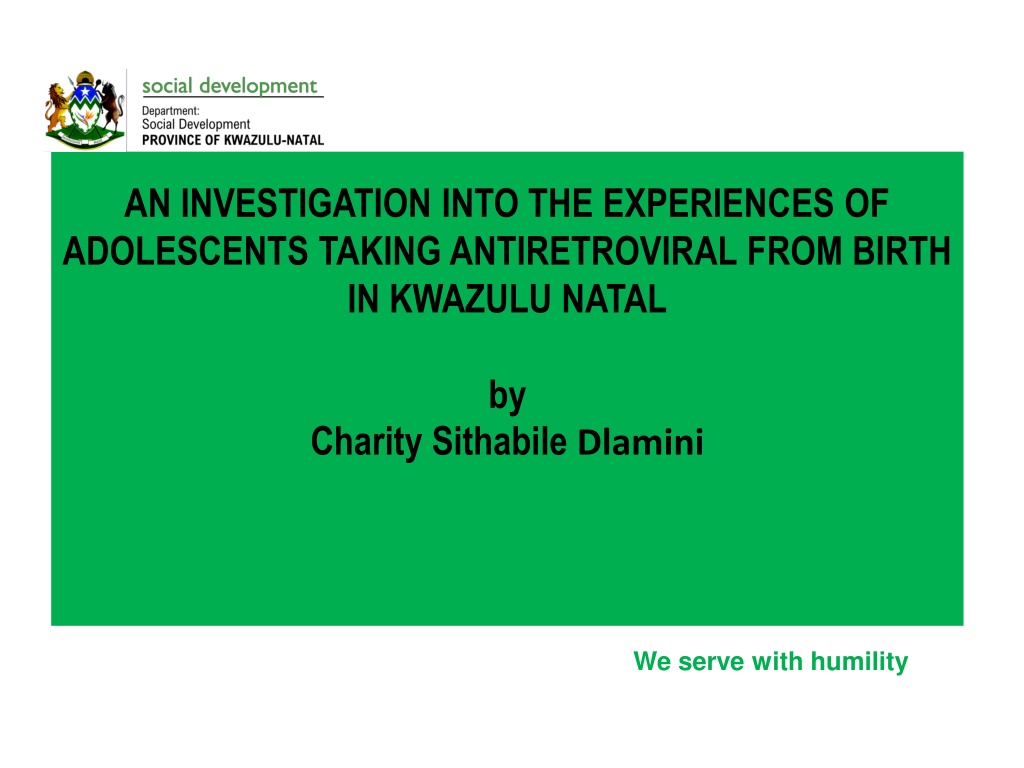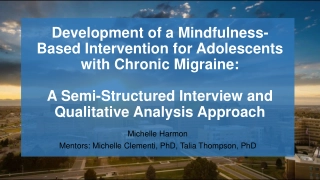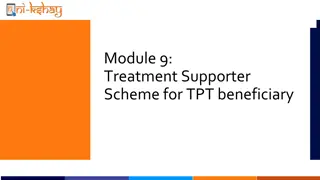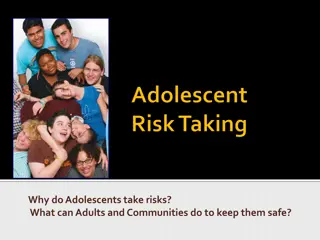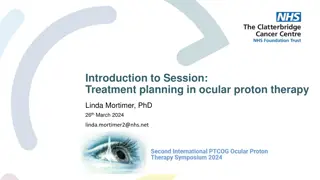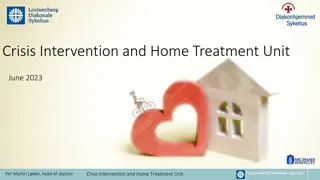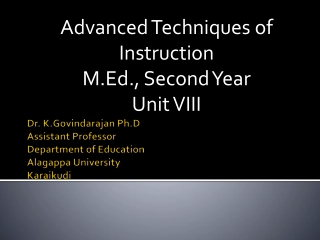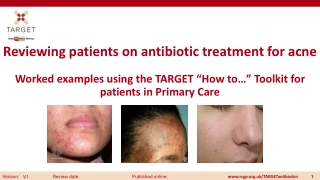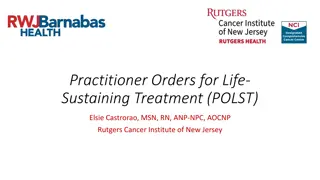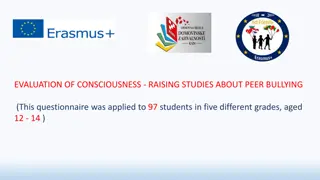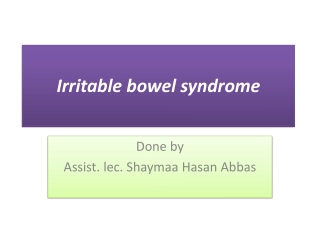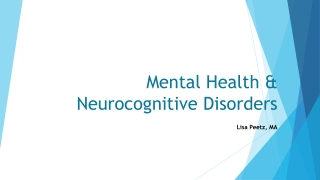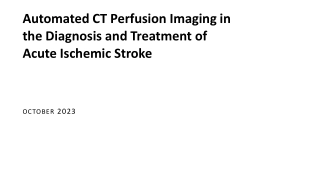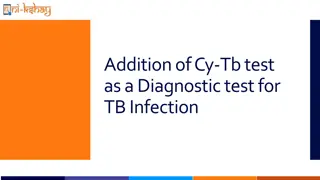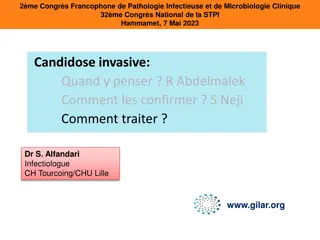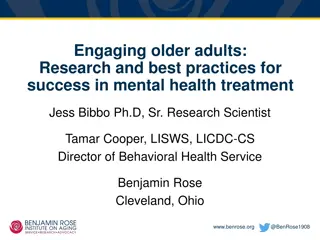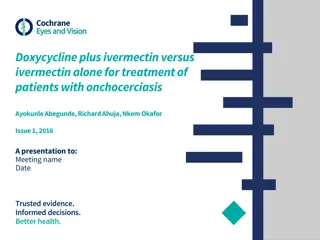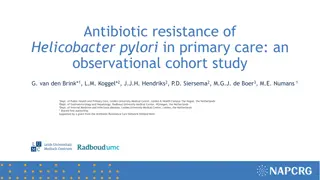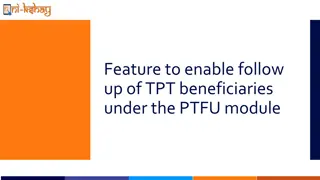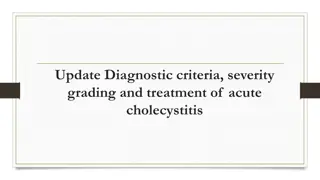Understanding the Experiences of Adolescents on Antiretroviral Treatment in KwaZulu-Natal
This investigation delves into the challenges and successes of adolescents born with HIV who are undergoing antiretroviral treatment in KwaZulu-Natal, South Africa. It aims to explore how these adolescents transition from pediatric to adult medication, their adherence to treatment, and the availability of psychosocial support for them and their caregivers. The study seeks to provide insights for social workers to offer relevant support and promote medication adherence among seropositive adolescents.
Download Presentation
Please find below an Image/Link to download the presentation.
The content on the website is provided AS IS for your information and personal use only. It may not be sold, licensed, or shared on other websites without obtaining consent from the author. Download presentation by click this link. If you encounter any issues during the download, it is possible that the publisher has removed the file from their server.
Presentation Transcript
AN INVESTIGATION INTO THE EXPERIENCES OF ADOLESCENTS TAKING ANTIRETROVIRAL FROM BIRTH IN KWAZULU NATAL by Charity Sithabile Dlamini We serve with humility
BIOGRAPHY Dlamini Charity Sithabile (Bachelor of art honours in psychology-UNISA-2018) BA in Social Work (UNISA-2011), Certificate in Monitoring Evaluation and Research (UKZN- 2018). Currently enrolled in Master s Degree in Social Science. Started working at Nicro as Social Auxiliary worker, then proceeded to Mental health society currently employed by Department of Social Development for 10 years as Social worker at Impendle office, Two years as a District coordinator for UMgungundlovu DSD coordinating Substance Abuse, Older Persons and Victim Empowerment Programs for the seven Local Municipalities. She is registered with SACSSP (10-29959).Sithabile conducts monitoring and evaluation to the Non-profit funded organizations by Social Development. We serve with humility
INTRODUCTION In South Africa, there is a reported increase in the number of people living with HIV, from 4,25 million in 2002 to 7, 52 million in 2018, constituting 13, 1% of the total population (Stats SA: 2018). The HIV burden is heavy for South Africa and the country has one of the highest infection rates in the world with girls and women most at risk (however, Eswatini and Lesotho have the highest infection rates). In South Africa, the most populated province is Gauteng, followed by Kwa-Zulu Natal. Total population estimates in census 2022 was 11, 54 million people living in the KZN province (StatsSA, 2022). Kwa-Zulu Natal comprise of 19, 4 percent of youth and young adults, indicating that the province has youth as majority citizenry. highest HIV infection burden was carried by females at the reproductive ages 15 to 49 years (StatsSA, 2018). We serve with humility
RATIONALE OF THE STUDY The intention of this desktop investigation is to understand better the Seropositive adolescents who are taking the antiretroviral treatment from birth. In order to understand the challenges or the success of the antiretroviral treatments impact on their lives, this study was based on the secondary data that is available in the public domain. The quest was how do the adolescents navigate the transition from pediatric to adult medication. Lastly, the researcher wanted to know what psychosocial help is available for the infected adolescents and their parents or caregivers in Kwa-Zulu Natal. We serve with humility
THE AIM The aim is to have an intensive understanding about adolescence, HIV and chronic treatment for Social workers to provide relevant psychosocial support to the seropositive adolescents and their care givers ,in order to promote and encourage adherence to their chronic medication . THE OBJECTIVES To examine how adolescents transition from pediatric to adult medication(how they navigate the change in medication ). To examine how adolescents adhere to taking their medication( the experience of medication) To examine what psychosocial support is available the seropositive adolescents and their parents or caregivers. We serve with humility
THEORETICAL FRAMEWORK This study was guided by constructionist argument, according to the Social constructivism theory human psychological and social processes result from social interactions and social existence (Burr, 2015). The culture in which we live provides structure and content to these relationships, research in sub-Saharan Africa has documented high and increasing culture of premarital sexual activities among adolescents. This theory is also relevant through the economic circumstances and the power dynamics which the adolescents find themselves in(Bhatasara et al, 2013). . We serve with humility
RESEARCH METHODOLOGY The methodology used is a Desktop research, In the quest to respond to the research question I used journal articles, websites, data and reports from StatsSA, the Department of Health, and the Department of Social Development. I used online databases and archives for health statistics such as (World Health Organization), and Government sources on public health. I used relevant peer-reviewed academic journals and books. We serve with humility
KEY RESULTS Evidence from literature shows a wide range of insights from existing literature, some of which are presented here. A key finding was that globally, many adolescents living with HIV acquired it through various modes of transmission: which include, Perinatal with HIV(PHIV) at birth and other non-PHIV modes such as sexual activity, intravenous drug use (USAID 2021). We serve with humility
Findings on the transition from pediatric to adult medication(how they navigate the change in medication) When an infant is born with perinatal HIV infection, the norm is that they start the ARV treatment from birth and they are initiated with doses that are designated for children and infants as they grow and develop they transition to adult antiretroviral doses as teenagers (World Health Organization, 2018). There is noted decrease in the infant mortality rate due to HIV/AIDS ,there is longevity of life for the Seropositive infants they are growing into adolescents and beyond . Another finding is that from the onset of treatment intake the parents or caregivers ensures the adherence of the seropositive to the treatment , regular clinic visits, and frequent collection of medication. When it s time for the adolescent to transition from pediatric to adult medication independently some studies suggest they lack skill (Evans et al., 2013). Lastly a finding on the perinatal infected adolescents aged 7-15 years perceive HIV as a painful experience both in physically and emotionally sense, they believed that with solid family and peer support structures they might get through the ordeal of transition to adult medication (Zanoni et al ., 2016)
Findings on the adherence to treatment by the adolescent Consistence with the prescribed method of medication intake the exact time and it chronic nature is predominantly challenging for the youngsters (De Cock, 2005). Mainly adolescents moves from the countryside of the province to townships and conurbations to search for employment opportunities and for tertiary institutions and during the often their medication intake is affected by the move(Huang et al., 2020). The seropositive status becomes a well-kept secret, the impact of non-disclosure can have an adverse effect medication adherence (Mutumba et al ., 2015). While this privacy is reported to be enforced by parents or caregiver in some occasions
Psychosocial support available for seropositive adolescent and their parents All municipalities have local Social Development Office where they can be linked with a ward based Social worker for counselling and unpacking of struggles in relations to raising the seropositive adolescent . There is a call Centre where they can call for free on their cellphone the emergency number for national is 0800428428 or they can use a USSD *120*7867# .Specifically for Kwa-Zulu Natal intervention they can call a Social worker 24 hours a day on this number 087 158 3000. Alternatively they can go to NPO s funded by the Department Of Social Development such as Lifeline ,Home based Care orgisation nearby where there are social workers based and trained to provide psychosocial support . Parents that are close to the hospitals where the multidisciplinary team are available they can just walk in for an appointment .
CONCLUSION The province of Kwa-Zulu Natal has the highest case load, for South Africa, this implies that there is the need for tailoured interventions to address adolescents, through the following measures : introducing appropriate sex education, providing enhanced testing and counselling establishing adolescent-friendly health care facilities undertaking youth empowerment programmes, and initiating high level collaborations between Government departments, schools, NGOs and health facilities to undertake adolescent friendly interventions. Further research is also required to determine factors that contribute to transition readiness for adolescents .
THANK YOU We serve with humility
